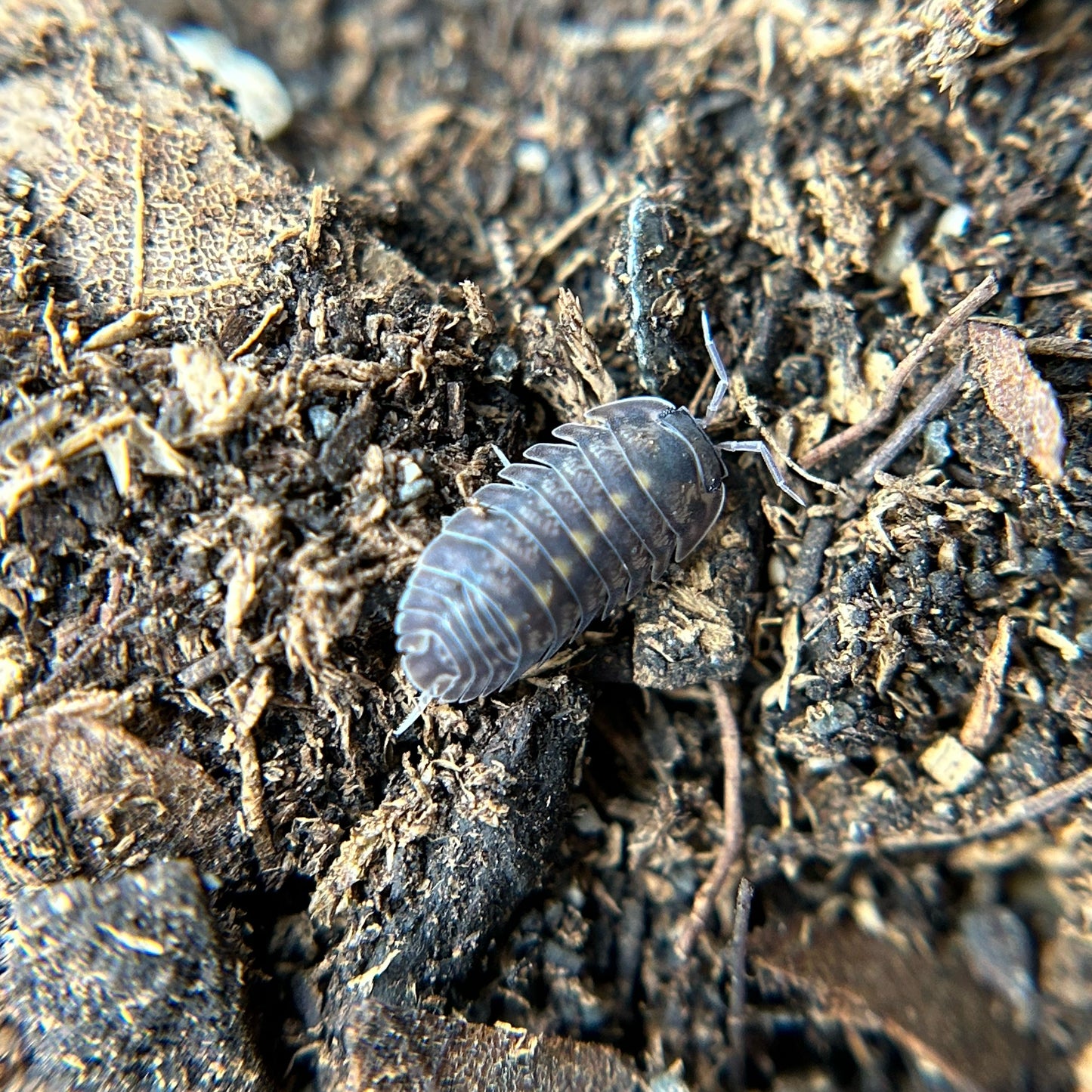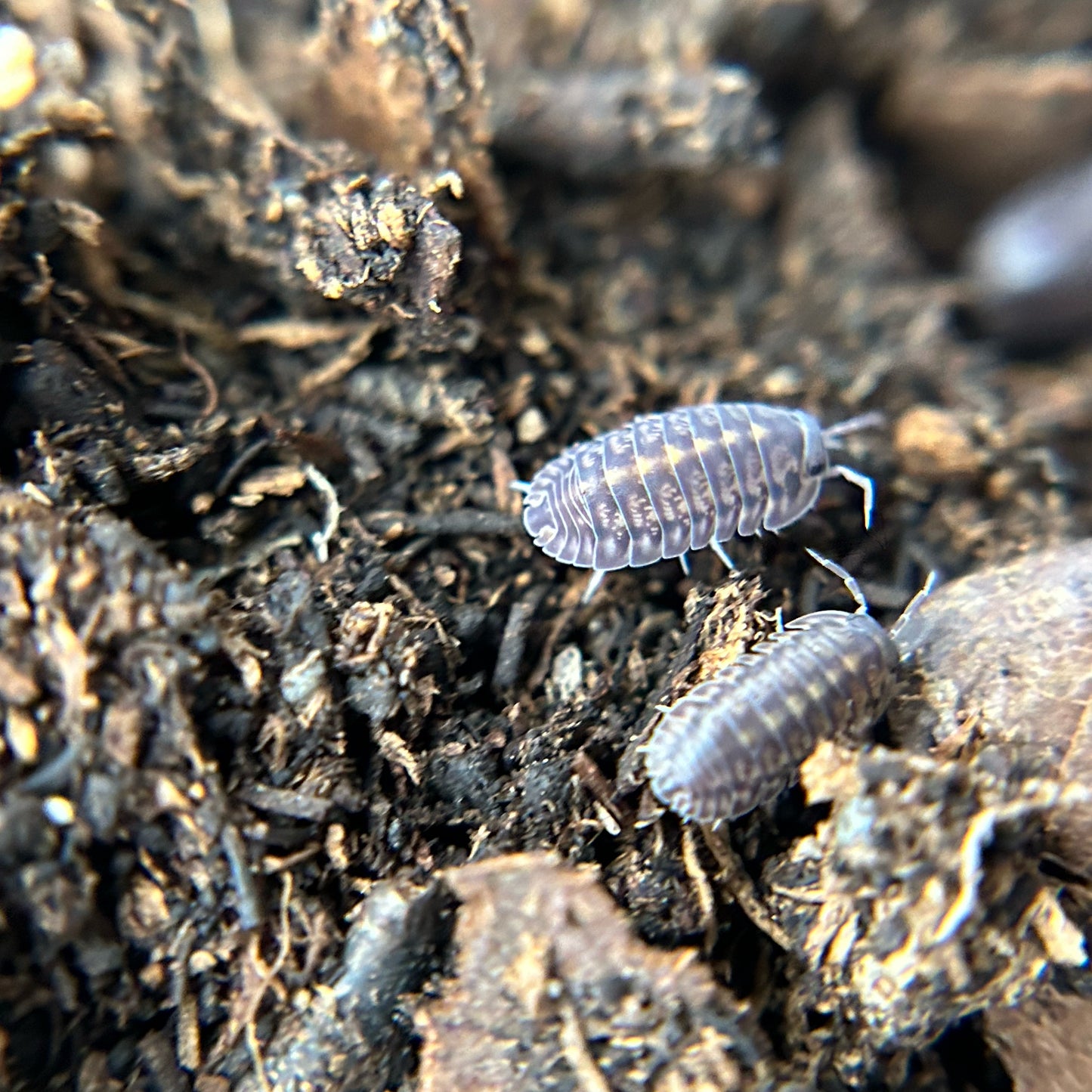1
/
of
2
luxor reptiles
Cubaris sp. platin tung song
Cubaris sp. platin tung song
Regular price
$95.00
Regular price
Sale price
$95.00
Unit price
/
per
Couldn't load pickup availability
10ct mixed sizes
Scientific name: Cubaris sp. platin tung song
Common name: Platin tung song isopod
Adult size: 1.2cm
Difficulty: Easy-Intermediate
Reproduction rate: Moderate
Humidity preferences: 50/50 humid/dry
Food and Water: We feed once a week with our Luxor Reptiles Isopod food, supplemented with egg shells, cuddle bones, snake sheds, and organic vegetables. Remember to feed only enough to be eaten in a 2-3 day period. Overfeeding can attract unwanted mold and pest problems. Remember, that an isopod's number one food source should be its environment. this means it's imperative to provide a high-quality nutrient-dense substrate, along with leaf litter, and wood.
Our Luxor Reptiles Bioactive Isopod Substrate and Luxor Reptiles Oak Leaf Litter work great! All hydration should be obtained from food and humid areas in the enclosure. water dishes of any kind aren't necessary.
Care and breeding: This species seems to breed better with the presence of limestone. A 2+ inch layer of substrate should always be used. We like to use sphagnum moss in one corner of our tubs, sprayed well once per week. There should be multiple pieces of cork bark and hardwood (oak bark works great) in the enclosure to provide hiding opportunities, as well as a food source. A small layer of leaf litter should be added on top of the substrate, again this acts as somewhere to hide as well as a food source. Always remember if you are collecting your own leaf litter or wood to always collect from an area far away from communities or anywhere that could have possibly been sprayed with pesticides. Temperatures should be kept around 70-80 degrees year-round. It's always a good idea to add new bloodlines and fresh substrate to a colony every 6months-1year to help prevent crashes. Try to avoid burning candles or using harsh chemicals around your isopods, this can sometimes result in a colony crash. If all the above conditions are met, your isopods should breed with no problem. As always, please reach out if you have any questions or need any advice.
Scientific name: Cubaris sp. platin tung song
Common name: Platin tung song isopod
Adult size: 1.2cm
Difficulty: Easy-Intermediate
Reproduction rate: Moderate
Humidity preferences: 50/50 humid/dry
Food and Water: We feed once a week with our Luxor Reptiles Isopod food, supplemented with egg shells, cuddle bones, snake sheds, and organic vegetables. Remember to feed only enough to be eaten in a 2-3 day period. Overfeeding can attract unwanted mold and pest problems. Remember, that an isopod's number one food source should be its environment. this means it's imperative to provide a high-quality nutrient-dense substrate, along with leaf litter, and wood.
Our Luxor Reptiles Bioactive Isopod Substrate and Luxor Reptiles Oak Leaf Litter work great! All hydration should be obtained from food and humid areas in the enclosure. water dishes of any kind aren't necessary.
Care and breeding: This species seems to breed better with the presence of limestone. A 2+ inch layer of substrate should always be used. We like to use sphagnum moss in one corner of our tubs, sprayed well once per week. There should be multiple pieces of cork bark and hardwood (oak bark works great) in the enclosure to provide hiding opportunities, as well as a food source. A small layer of leaf litter should be added on top of the substrate, again this acts as somewhere to hide as well as a food source. Always remember if you are collecting your own leaf litter or wood to always collect from an area far away from communities or anywhere that could have possibly been sprayed with pesticides. Temperatures should be kept around 70-80 degrees year-round. It's always a good idea to add new bloodlines and fresh substrate to a colony every 6months-1year to help prevent crashes. Try to avoid burning candles or using harsh chemicals around your isopods, this can sometimes result in a colony crash. If all the above conditions are met, your isopods should breed with no problem. As always, please reach out if you have any questions or need any advice.
Share
Low stock: 5 left
View full details



